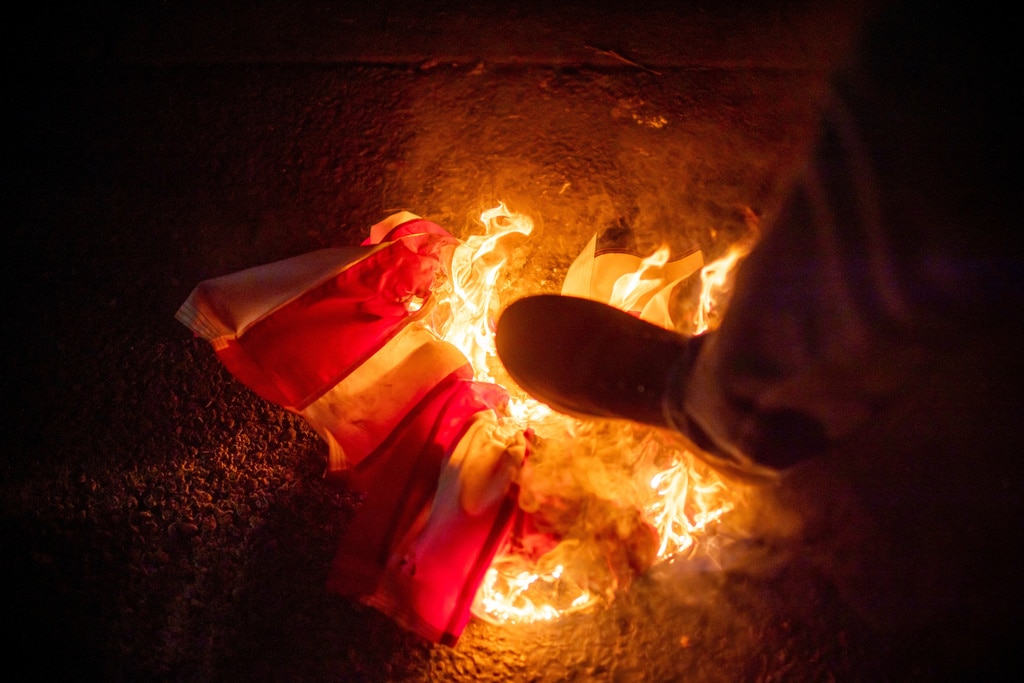President Trump is claiming that his executive order attempt to criminalize burning of the American flag negated a 1989 U.S. Supreme Court decision establishing free-speech protection for such protests.
“President Donald Trump on Oct. 8 said his administration ‘took the freedom of speech away’ as it relates to flag burnings, an activity that the Supreme Court has ruled is protected under the First Amendment.
“’We took the freedom of speech away, because that’s been through the courts, and the courts said you have freedom of speech but what has happened is when they burn the flag it agitates and irritates crowds,’ Trump said during a roundtable discussion on Antifa. “I’ve never seen anything like it, on both sides, and you end up with riots.’”
“In Texas v. Johnson, 491 U.S. 397 (1989), the Supreme Court struck down on First Amendment grounds a Texas flag-desecration law. The 5-4 decision has served as the center point of a continuing debate regarding the value of free speech as exercised through the burning of the U.S. flag as a form of political protest.”
From the First Amendment Encyclopedia:
“During the 1984 Republican National Convention in Dallas, Gregory Lee Johnson participated in protests against the Reagan administration’s policies and the nomination of President Ronald Reagan for a second term. Culminating the protests, Johnson doused a U.S. flag with kerosene and set it on fire. After the flag was burned, a witness gathered the flag’s remains to bury them.
“Of the 100 demonstrators gathered, only Johnson was charged with violating a Texas state law, which made desecrating the national flag a criminal offense. Johnson was convicted, but the Texas Court of Criminal Appeals overturned his conviction. Texas then appealed to the Supreme Court.
“Writing for the majority, Justice William J. Brennan Jr. noted that expressive conduct is protected by the First Amendment, and that the government’s interests in protecting the flag did not trump the right to engage in political speech. Texas argued that the state was seeking to prevent breaches of the peace and to preserve the flag as “a symbol of nationhood and national unity,” but the Court rejected the application of the “fighting words” doctrine and the governmental interest in protecting a symbol.
“Brennan argued that it “would be odd … that the government may ban the expression of certain disagreeable ideas on the unsupported presumption that their very disagreeableness will provoke violence.” Brennan held that Johnson was charged and convicted for “his expression of dissatisfaction with the policies of this country, expression situated at the core of our First Amendment values.”
The Free Speech Center newsletter offers a digest of First Amendment and news-media news every other week. Subscribe for free here: https://bit.ly/3kG9uiJ
